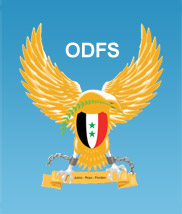Ribal Al-Assad condemns barbaric use of capital punishment in Syria
Wednesday, 27 August 2014
Beheadings in Syria Now Routine, U.N. Panel Says
NEW YORK TIMES
Public executions, often beheadings, are becoming a “common spectacle” in parts of Syria controlled by Islamic militants, and government forces there continue to massacre and torture civilians, a United Nations panel said in a report released on Wednesday.
The three-year civil war in Syria, which began between government and opposition groups, has evolved into multiple, shifting conflicts involving countless armed groups, in which government forces and Islamic militants are routinely committing war crimes and crimes against humanity, the four-member panel said in its eighth report since it was established three years ago.
Government forces had made significant advances in most strategic areas, the panel found, but the most marked change in the conflict was the increasing strength of the Islamic State in Iraq and Syria, which has seized military hardware in Iraq and combines brutality with the provision of basic services and jobs, helping to curb resentment over its harsh rule.
“The overall scale of the violations continues to increase regardless of the parties perpetrating them,” Paulo Pinheiro, the chairman of the panel, said at a news conference in Geneva, voicing frustration over the paralysis on Syria in the United Nations Security Council. “This paralysis is responsible for acute harm to victims of this war,” he said.
“Government forces continued to perpetrate massacres and conduct widespread attacks on civilians, systematically committing murder, torture, rape and enforced disappearance,” the panel said, drawing on testimony collected in the six months that ended July 21.
The government, without enough troops to attack opposition forces on all fronts, has used heavy air and artillery bombardment, striking markets, shops, hospitals, schools and other places where civilians gather, rather than the military capacities of armed enemy forces, the panel said.
In April, when Syria was completing the disposal of its chemical arsenal, the panel said it had found credible evidence that government helicopters had used chlorine gas in barrel bomb attacks on the civilian-inhabited areas of Idlib and Hama.
Chlorine, a common industrial chemical, is not covered by the chemical weapons convention under which Syria destroyed its stockpile of highly toxic sarin and mustard gas, but use of any chemical agent for military purposes is a war crime, the panel said.
Nongovernmental armed groups have also committed massacres and war crimes, the panel said, deliberately attacking civilians with indiscriminate artillery fire, conducting summary executions and torture, taking hostages and targeting medical and religious personnel and journalists. ISIS did not have a monopoly on the violence, panel members stressed, saying other armed groups were also brutal.
“Executions in public spaces have become a common spectacle on Fridays” in the regions of Raqqa and Aleppo, which are controlled by ISIS, the panel said. It cited dozens of documented beheadings and described how ISIS encouraged residents to watch them. Some victims’ bodies were displayed on crucifixes for days afterward as a warning to residents, the report added.
Most of the victims were adult men accused of being affiliated with other armed groups or of violating an ISIS criminal code, but the victims also included five people under the age of 18 who were executed in April, and two women who were stoned to death by mobs.
Detainees held by government forces as well as those taken by armed opposition groups have faced torture and cruel treatment, the panel said. Government intelligence agencies have subjected “tens of thousands of victims to unimaginable suffering,” the panel said, citing a rise in the number of people who have reportedly died in government detention centers from torture, starvation or lack of medical attention.
In Aleppo and Raqqa, “public squares have become the scene of amputations, lashings and mock crucifixions,” the panel said. Men have been lashed for accompanying women who were “not properly dressed,” and women were beaten for not properly covering themselves, sometimes by female members of ISIS.
Among “the most disturbing developments,” Mr. Pinheiro said, was the creation of large ISIS camps training children, mostly boys around the age of 14 but sometimes as young as 10, for armed conflict.
Noting that Washington is weighing possible attacks on targets in Syria after President Obama authorized surveillance flights, Mr. Pinheiro said, “I think the United States must respect the laws of war, and we are concerned about the presence of these children.”
Responding to the news, ODFS Director, Ribal Al-Assad said:
"I am disgusted by the barbaric use of capital punishment, including mass beheadings, in Syria.
This medieval practice has no place in todays world and should be consigned back where it belongs - to the dustbin of history.
There is absolutely no justification for these brutal acts and more must be done by the international community to bring about an end to the summary executions which are becoming more prolific every day.
These Islamists are blood-thirsty, they will not stop until they have murdered every person who does not subscribe to their perverted ideology, we simply cannot let this happen. We must ensure that the whole region is rid of Islamism; it has no place in todays world."

